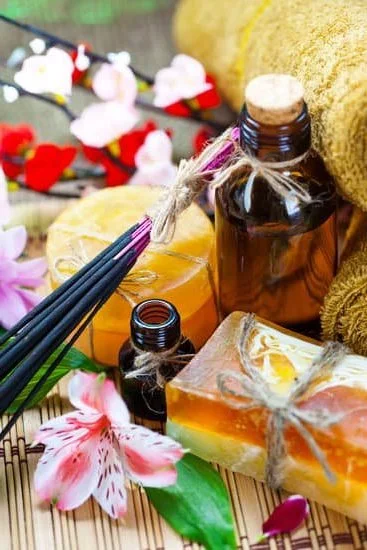Aromatherapy guidelines are essential for anyone interested in using essential oils for their therapeutic benefits. Aromatherapy, also known as essential oil therapy, is a holistic healing treatment that uses natural plant extracts to promote health and well-being. This introductory section will provide an overview of aromatherapy, its history, and the numerous benefits it offers.
Aromatherapy dates back thousands of years, with roots in ancient civilizations such as Egypt, Greece, and China. It has been used for various purposes, including medicinal, spiritual, and cosmetic. Today, aromatherapy is widely recognized for its ability to alleviate stress and anxiety, improve sleep quality, and enhance mental clarity and focus.
Essential oils are the cornerstone of aromatherapy. These highly concentrated plant extracts are derived from different parts of plants through methods like distillation or cold-pressing. Each essential oil possesses unique properties that can impact emotions and overall well-being when used appropriately.
Understanding the types of essential oils available and how they are extracted and utilized in aromatherapy is vital for safe and effective use. Additionally, proper safety precautions must be observed when using essential oils to prevent adverse reactions or sensitivities-especially among vulnerable groups such as children, the elderly, and pregnant women.
Understanding Essential Oils
What are essential oils? These highly concentrated plant extracts are renowned for their therapeutic and aromatic properties. They have been used for centuries in various cultures for medicinal and health purposes. Essential oils are typically extracted through methods such as steam distillation, cold pressing, or solvent extraction. The end result is a potent oil that carries the natural fragrance and benefits of the plant it was derived from.
Different types of essential oils offer unique benefits due to their distinct chemical compositions. For example, lavender essential oil is well-known for its calming and soothing effects, making it ideal for relaxation and sleep support. On the other hand, eucalyptus essential oil is often used for respiratory support and to clear congestion. It’s important to understand the properties of each essential oil when using them in aromatherapy to achieve the desired results.
When using essential oils in aromatherapy, it’s crucial to ensure safety and proper usage guidelines. Essential oils are highly concentrated substances that can cause adverse reactions if not used correctly. Diluting essential oils with a carrier oil before applying them to the skin helps reduce the risk of irritation or sensitivities.
Additionally, some essential oils may not be suitable for certain age groups or individuals with specific health conditions. Adhering to aromatherapy guidelines ensures a safe and enjoyable experience when using essential oils for health and wellness.
| Essential Oil | Main Benefit |
|---|---|
| Lavender | Calming and relaxation |
| Eucalyptus | Respiratory support |
| Peppermint | Headache relief and digestion aid |
Safety Precautions in Aromatherapy
Aromatherapy is a holistic healing treatment that uses essential oils to promote physical, mental, and emotional well-being. These essential oils are extracted from plants and have been used for centuries for their therapeutic properties. It is important to understand the safety precautions in aromatherapy to ensure that it is used effectively and without any adverse effects.
When using essential oils in aromatherapy, it is crucial to dilute them properly before applying them to the skin. Essential oils are highly concentrated and can cause irritation or sensitivities if used undiluted. Diluting essential oils in a carrier oil, such as coconut oil or almond oil, helps to reduce the risk of adverse reactions and makes the essential oil safer for use on the skin.
It is also important to consider allergic reactions and sensitivities when using aromatherapy. Some individuals may have allergies to certain plants from which essential oils are derived. Before using a new essential oil, perform a patch test on a small area of skin to check for any allergic reactions. Additionally, pregnant women, young children, and elderly individuals may have different sensitivities to essential oils, so it is crucial to follow specific guidelines for safe usage in these populations.
Incorporating aromatherapy into your daily routine can offer numerous benefits for physical and emotional well-being. However, it is important to prioritize safety when using essential oils in aromatherapy. By following these safety precautions and guidelines, you can experience the many benefits of aromatherapy while minimizing the risk of any adverse effects.
Choosing the Right Essential Oils
When it comes to choosing the right essential oils for your needs, it’s important to consider the specific properties and benefits of each oil. Whether you are looking for essential oils to help with relaxation, alleviate pain, or boost energy, there are several factors to take into account. By understanding how to pick the best essential oils for your needs, you can effectively harness the power of aromatherapy for your overall well-being.
Types of Essential Oils
Essential oils come in a wide variety of types, each with its own unique set of properties and benefits. Some popular essential oils include lavender, peppermint, tea tree, and eucalyptus. Lavender is known for its calming and stress-relieving effects, while peppermint is often used to ease headaches and improve mental alertness. Tea tree oil has natural antibacterial properties and is often used in skincare products. Eucalyptus oil is commonly used for respiratory support and clearing congestion.
Recommended Essential Oils
Depending on your specific needs, there are certain essential oils that are recommended for common ailments and purposes. For example, if you are looking to promote relaxation and improve sleep quality, essential oils such as chamomile, bergamot, and cedarwood are known for their soothing properties. On the other hand, if you are seeking relief from muscle pain or inflammation, essential oils like ginger, black pepper, and rosemary may be more suitable.
Purchasing Essential Oils
When purchasing essential oils, it’s crucial to look for high-quality products that are pure and unadulterated. Be wary of synthetic fragrances or diluted oils that may not provide the therapeutic benefits associated with pure essential oils.
Consider buying essential oils from reputable brands or suppliers that prioritize quality and transparency. Additionally, check for information about the botanical name of the plant from which the oil is derived as well as details about its extraction method to ensure you are getting a genuine product that meets aromatherapy guidelines.
With these considerations in mind, you can confidently select the right essential oils to incorporate into your aromatherapy practices based on your individual preferences and wellness goals.
Methods of Aromatherapy Application
Different Ways to Use Essential Oils
Aromatherapy can be applied in various ways, each with its unique benefits and considerations. The most common methods include diffusion, inhalation, and topical application. Diffusion involves dispersing essential oils into the air using a diffuser, allowing the aroma to fill the room and provide therapeutic effects.
Inhalation directly involves breathing in the aroma of essential oils, which can have a quick impact on mood and emotions. Meanwhile, topical application involves diluting essential oils with a carrier oil and applying them to the skin, allowing for absorption into the body.
Benefits and Drawbacks of Each Application Method
Diffusion is often favored for creating an inviting atmosphere at home or work, as well as for respiratory benefits. However, some people may find inhalation overwhelming if they are sensitive to strong scents. Topical application is effective for targeted relief but requires careful dilution to avoid skin irritation or sensitivities. It’s essential to weigh the pros and cons of each method based on individual needs and preferences.
Tips for Effectively Applying Aromatherapy Techniques
To maximize the benefits of aromatherapy, it’s important to follow certain guidelines when using essential oils. This includes choosing high-quality oils, carefully measuring and diluting them as needed, and being mindful of potential adverse reactions or interactions with existing health conditions or medications. Additionally, exploring different application methods allows individuals to tailor their aromatherapy experience to suit their specific wellness goals.
By understanding these various methods of application and following aromatherapy guidelines, individuals can make informed choices about how they incorporate essential oils into their daily routines for physical, mental, and emotional well-being.
Aromatherapy Guidelines for Stress Relief
Aromatherapy for stress relief is a widely popular and effective method to manage everyday anxieties and pressures. When properly used, essential oils have the power to alleviate stress through their aromas and therapeutic properties. According to aromatherapy guidelines, some of the best essential oils for relieving stress and anxiety include lavender, chamomile, bergamot, and ylang-ylang. These essential oils are known for their calming and relaxing effects on the mind and body.
Creating a calming and relaxing atmosphere at home or in the workplace can promote stress relief using aromatherapy techniques. Diffusing essential oils such as lavender or bergamot can help create an environment conducive to relaxation. Aromatherapy guidelines recommend using an essential oil diffuser to disperse the aroma throughout the space. Additionally, adding a few drops of essential oil to a warm bath or using an aromatherapy inhaler can provide immediate stress relief during particularly tense moments.
Aside from immediate applications, incorporating self-care rituals and practices into daily routines is also part of aromatherapy guidelines for stress relief. Taking time out of each day to practice mindfulness and meditation while using essential oils can significantly reduce stress levels over time. Creating a self-care routine that involves aromatherapy not only helps manage stress but also promotes overall well-being.
When practicing aromatherapy for stress relief, it is important to keep in mind that individual responses to essential oils may vary. Moreover, following proper dilution and usage guidelines is crucial for safety and effectiveness. Pregnant women should consult with a healthcare professional before using any type of aromatherapy treatment, as certain essential oils may be contraindicated during pregnancy.
| Essential Oils | Stress Relief Properties |
|---|---|
| Lavender | Calming and relaxing effects on the mind and body |
| Chamomile | Promotes relaxation and reduces tension |
| Bergamot | Uplifting citrus scent; eases anxiety and lifts mood |
Incorporating Aromatherapy Into Daily Routine
Incorporating aromatherapy into your daily routine can be a simple and enjoyable way to promote overall well-being and relaxation. By integrating the use of essential oils into different aspects of your day, you can experience the therapeutic benefits of aromatherapy while going about your daily activities. Whether it’s for mental focus, stress relief, or creating a calming atmosphere, there are various ways to incorporate aromatherapy into your routine.
One way to integrate aromatherapy into your daily life is through the use of personal inhalers or diffusers. These portable devices allow you to enjoy the benefits of essential oils wherever you go, whether it’s at work, in the car, or during travel. Simply add a few drops of your chosen essential oil onto the diffuser insert or inhaler wick and breathe in the aromatic vapors for an instant mood boost or stress relief.
Another way to include aromatherapy in your daily routine is by incorporating it into your self-care rituals. Adding a few drops of lavender or chamomile essential oil to a warm bath can create a soothing and relaxing experience after a long day. Additionally, using essential oils during massage therapy or as part of your skincare routine can help enhance relaxation and promote healthy skin.
Lastly, using essential oils in home cleaning products can be an effective way to introduce aromatherapy into your daily life. By adding antibacterial and antiviral essential oils such as tea tree or eucalyptus to homemade cleaners, you can create a healthier environment while enjoying the uplifting aroma of these natural scents throughout your home.
By finding creative ways to incorporate aromatherapy into your daily routine, you can experience the holistic benefits of this practice on both physical and emotional levels. It’s important to remember that when using essential oils on a regular basis, it’s crucial to follow proper aromatherapy guidelines and safety precautions to ensure safe usage and maximum benefit from these natural remedies.
Conclusion and Further Resources
In conclusion, aromatherapy is a holistic and natural way to promote health and well-being. Through the use of essential oils, this practice has been shown to have numerous benefits for physical, mental, and emotional wellness. By incorporating aromatherapy into your daily routine, you can experience reduced stress, improved sleep, enhanced focus, and overall relaxation.
It is important to keep in mind the safety precautions discussed in this article when using essential oils for aromatherapy. Diluting essential oils, being mindful of allergic reactions and sensitivities, and following safe usage guidelines for different age groups are crucial to ensure a positive experience with aromatherapy. Choosing the right essential oils for your needs and learning about different application methods are also key factors in maximizing the benefits of aromatherapy.
For those interested in delving further into the world of aromatherapy, there are plenty of resources available for additional learning. Whether it’s books, websites, or professional courses, taking the time to educate yourself on aromatherapy guidelines and best practices will only enhance your experience with this natural healing art. Incorporating aromatherapy into your daily life can be a simple yet powerful way to support your overall well-being.
Frequently Asked Questions
What Are the Guiding Principles of Aromatherapy?
The guiding principles of aromatherapy revolve around the use of natural essential oils to promote physical, mental, and emotional well-being. These principles emphasize the holistic approach to healing and the individualized use of scents for therapeutic purposes.
What Are the Guidelines for Essential Oils?
When using essential oils, it is crucial to follow guidelines such as diluting them with carrier oils before applying them to the skin, avoiding direct contact with mucous membranes, and performing a patch test to check for any adverse reactions. Proper storage and handling of essential oils is also important to ensure their efficacy and safety.
Is Aromatherapy Regulated by the FDA?
Aromatherapy itself is not regulated by the FDA since it falls under the category of complementary and alternative medicine rather than conventional medicine. However, certain essential oils may be regulated by the FDA if they are used in specific products or for specific purposes, such as in food flavorings or topical treatments.
Therefore, it’s important for consumers to be aware of any FDA regulations pertaining to the specific use of essential oils.

Are you looking for a natural way to improve your health and wellbeing?
If so, aromatherapy may be the answer for you.



